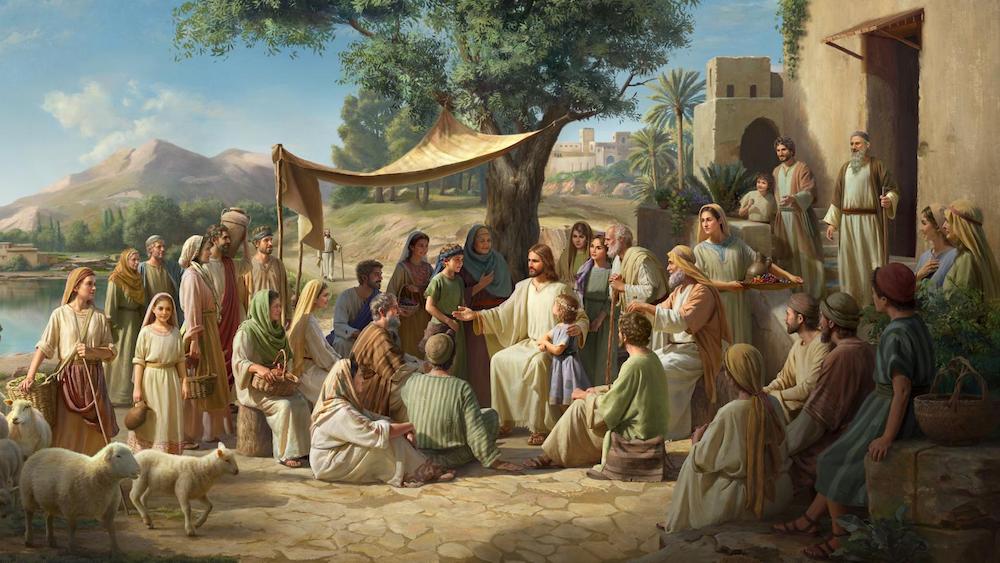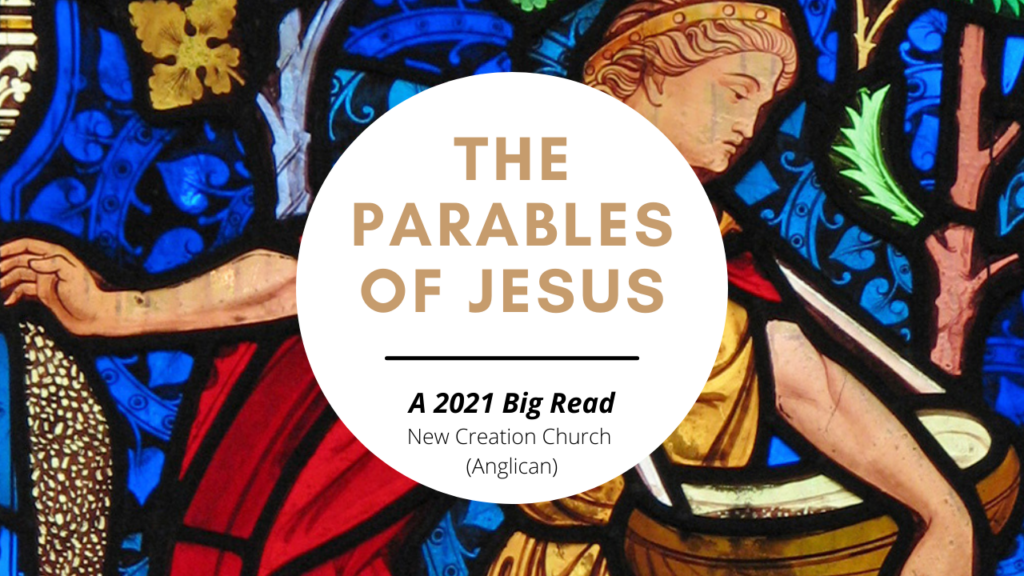Do you ever find yourself pondering the deeper meaning behind the parables of Jesus? Wondering how they apply to your own life and what lessons they have to teach? If so, you’re not alone. The parables found in the Gospels are rich with wisdom and insight, inviting us to engage in thoughtful reflection and consider the profound truths they hold.
In this article, we will explore the profound impact of the parables of Jesus and how they continue to resonate with us today. We will delve into the various parables and their underlying messages, encouraging you to think over these stories and apply their lessons to your own life. Whether it’s the story of the prodigal son, the good Samaritan, or the mustard seed, each parable offers a unique perspective on faith, compassion, and the kingdom of God.
So, if you’re ready to dive deeper into the world of the parables of Jesus and uncover the hidden treasures they hold, join us on this journey of discovery. Throughout this article, we will unravel the layers of meaning in these timeless stories, and hopefully, come away with a renewed understanding and appreciation for the Gospel in thought.
Understanding the Parables
What are parables?
Parables are short, simple stories used by Jesus to teach important lessons and convey spiritual truths. They often involve relatable characters and events from everyday life, making it easier for people to understand and remember the message being shared. Jesus employed this teaching method throughout his ministry, using parables to engage his audience and provoke thought.
The purpose of Jesus’ parables
Jesus used parables to communicate profound truths about the Kingdom of God and spiritual principles. One of the reasons for using parables was to reveal the mysteries of the Kingdom to those who were receptive and willing to seek understanding. The parables served as a way for Jesus to guide his disciples and followers in their journey of faith.
The significance of parables in the Gospel
The parables play a crucial role in the Gospel, as they offer insights into the nature of God, his kingdom, and the transformative power of his love and grace. They provide practical wisdom for everyday life, addressing common human experiences such as forgiveness, compassion, and the pursuit of righteousness. By engaging with Jesus’ parables, we can deepen our understanding and application of the Gospel in our lives.
Interpreting Jesus’ Parables
The challenges of interpreting parables
Interpreting parables can be challenging due to the use of symbolic language and metaphorical elements. It requires careful consideration and often invites multiple interpretations. Jesus intentionally presented his teachings in this way to encourage contemplation and stimulate spiritual growth.
Analogy and metaphor in parables
Parables often employ analogy and metaphor to illustrate spiritual truths. They use familiar elements from everyday life to point to deeper realities. By doing so, Jesus bridges the gap between the natural and the supernatural, inviting his listeners to explore the profound meaning found within these stories.
Identifying the central message in parables
While parables allow for various interpretations, they usually have a central message or core theme. Identifying this message involves considering the context, the characters, and the ultimate purpose of the parable. By discerning the central message, we can apply the teachings to our lives and allow them to shape our understanding of God and his Kingdom.

This image is property of i0.wp.com.
Parable of the Sower
Overview of the parable
The Parable of the Sower illustrates the different responses people have to the message of the Kingdom. Jesus describes four types of soil representing different conditions of the heart – the wayside, rocky ground, thorny ground, and good soil. Each represents varying levels of receptivity and faith.
Symbolism in the parable
The seeds in this parable represent the word of God, which is sown into the hearts of people. The different types of soil represent the different ways individuals respond to the message. The parable urges us to examine our hearts, to cultivate receptivity, and to be aware of any obstacles that hinder our faith.
Lessons about faith and receptivity
The Parable of the Sower challenges us to reflect on our own receptivity to God’s word. Are we like the wayside, where the seed is quickly snatched away? Do we have shallow faith, represented by the rocky ground? Are we consumed by worldly desires like the thorny ground? Or are we like the good soil, where the word takes root and bears fruit? This parable invites us to cultivate a heart that is open and receptive to God’s word, allowing it to transform our lives.
Parable of the Prodigal Son
Analyzing the characters in the parable
The Parable of the Prodigal Son tells the story of a young man who squanders his inheritance and eventually returns to his father in repentance. The characters in this parable – the father, the prodigal son, and the older brother – represent different aspects of our relationship with God and each other.
The theme of forgiveness and redemption
At its core, this parable emphasizes the theme of forgiveness and redemption. The father’s unwavering love and mercy towards his wayward son exemplify God’s unconditional love for us. The story challenges us to extend forgiveness to those who have wronged us and to reconcile with those who have strayed.
Implications for our relationship with God
The Parable of the Prodigal Son reminds us of our profound need for God’s forgiveness and the lengths to which he will go to welcome us back into his loving embrace. It prompts us to reflect on our own attitudes towards those who have “strayed” and encourages us to imitate God’s lavish love and mercy in our relationships with others.

This image is property of bg3-blog.s3.amazonaws.com.
Parable of the Good Samaritan
Examining the social context of the parable
The Parable of the Good Samaritan challenges societal norms and prejudices by presenting a despised Samaritan as the hero. Samaritans were considered outcasts by the Jewish community, yet Jesus uses this character to convey a powerful message about compassion and loving thy neighbor.
Lessons on compassion and loving thy neighbor
The parable calls us to adopt a compassionate and inclusive attitude towards others, regardless of their social or cultural background. It urges us to look beyond our prejudices and preconceived notions, to show love and mercy even to those whom society deems unworthy.
Challenging societal norms and prejudices
By highlighting the actions of the despised Samaritan, Jesus challenges his listeners to examine their own biases and attitudes towards those who are different from them. The parable compels us to break down barriers and extend love and compassion to all, regardless of societal norms or expectations.
Parable of the Lost Sheep
Exploring the shepherd-sheep analogy
The Parable of the Lost Sheep portrays God as the loving shepherd who tirelessly seeks out the one lost sheep. The sheep represents humanity, and the parable emphasizes God’s relentless pursuit of those who have strayed from him.
God’s relentless pursuit of the lost
This parable reassures us of God’s unwavering love and his commitment to seeking and saving the lost. It reminds us that no matter how far we may have wandered, God is always ready to welcome us back with open arms and rejoice over our repentance.
The joy of repentance and restoration
The Parable of the Lost Sheep also emphasizes the joy and celebration that accompanies repentance and restoration. It illustrates God’s desire to see sinners turn back to him and experience the abundant life that only he can provide. This parable encourages us to embrace repentance and experience the joy of being reconciled with God.

This image is property of www.hearthymn.com.
Parable of the Mustard Seed
Symbolism of the mustard seed
The Parable of the Mustard Seed uses the image of a small seed that grows into a large tree to symbolize the growth and impact of God’s kingdom. Despite its small beginnings, the mustard seed grows into a significant and influential plant.
The growth and impact of God’s kingdom
This parable reminds us that the Gospel, though seemingly insignificant at first, has the power to grow and transform lives. It encourages us to have faith in the small beginnings and to trust in God’s ability to work through even the humblest of circumstances.
Finding hope in small beginnings
The Parable of the Mustard Seed offers hope and encouragement, especially for those who feel insignificant or limited in their ability to make a difference. It reassures us that even the smallest acts of faith and obedience can have a significant impact when empowered by God’s grace.
Conclusion
Reflecting on the profound teachings of Jesus’ parables
Jesus’ parables continue to captivate and challenge us, inviting us to reflect on their timeless wisdom and apply their lessons to our daily lives. They serve as a reminder of the depth and complexity of God’s love and his plans for humanity.
Applying the lessons to our daily lives
The parables provide practical guidance for navigating the complexities of life and relationships, urging us to cultivate a heart receptive to God’s word, extend forgiveness and love to others, break down societal barriers, embrace repentance, and trust in the growth and impact of God’s kingdom.
The enduring relevance of the Gospel in thought
As we delve into the parables of Jesus, we discover a wealth of spiritual truths and profound teachings that continue to resonate with us today. They encourage us to think deeply, to wrestle with the complexities of faith, and to ponder the transformative power of the Gospel in our lives and in the world around us. May we embrace the Gospel in thought, allowing it to shape our understanding, our character, and our actions.

This image is property of i0.wp.com.







